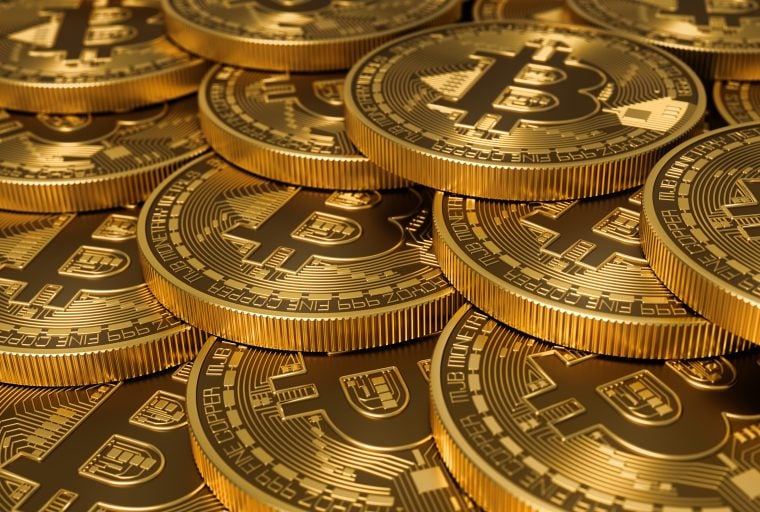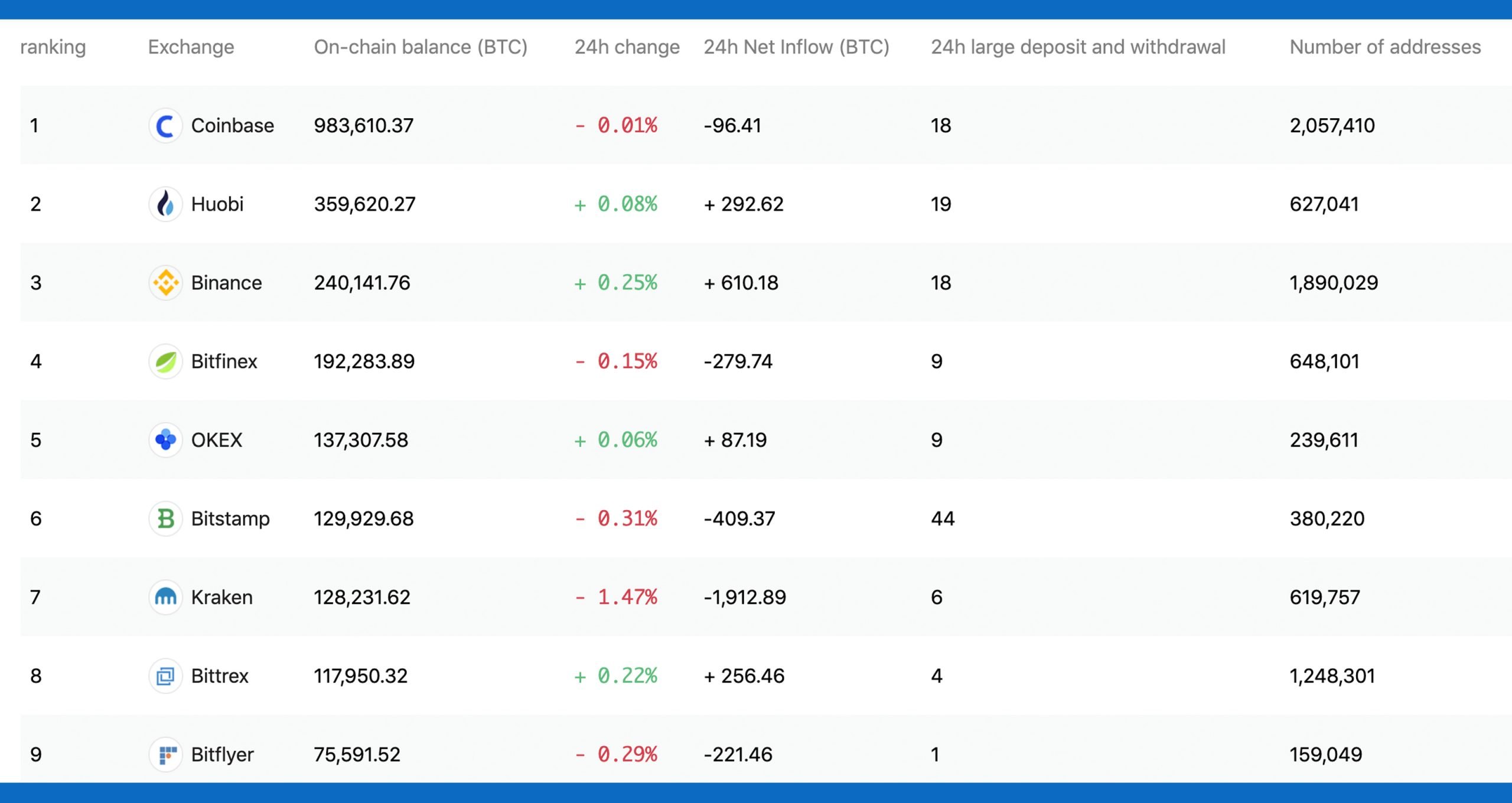[ad_1]

On January 3, 2020, a small group of crypto lovers celebrated the second annual Proof-of-Keys day with hopes to get folks to withdraw funds from centralized digital foreign money exchanges. Nonetheless, exchanges holding large quantities of BTC solely noticed their reserves develop bigger and knowledge reveals that Coinbase now holds 1 million BTC ($8.four billion). Crypto customers are nonetheless conserving massive sums of digital asset holdings on buying and selling platforms even if 2019 noticed probably the most change hacks in a single yr during the last decade.
Additionally learn: The Fallout From Onecoin’s Ponzi Scheme Continues to Affect Traders
Regardless of Proof-of-Keys Day, Seven Buying and selling Platforms Have Extra Than $25 Billion in Crypto Reserves
2019 noticed a big quantity of buying and selling platform hacks and change losses in response to a current report authored by the blockchain surveillance agency Chainalysis. The corporate famous that regardless that there have been extra assaults there was much less cash stolen. Nonetheless, Chainalysis highlighted that malicious hackers have gotten smarter. “2019 noticed extra cryptocurrency hacks than some other yr,” the report underlined. “However of the 11 assaults that occurred this yr, none of them got here near matching the dimensions of main heists equivalent to [2018]’s $534 million Coincheck hack.” Final yr digital foreign money exchanges misplaced roughly “$283 million price of cryptocurrency” because of breaches and malicious hackers.

A few month earlier than the second annual Proof-of-Keys day initiated by Hint Mayer, information.Bitcoin.com reported on the huge variety of cash centralized exchanges held in reserve. The listing was supplied by Bituniverse utilizing the agency’s Change Clear Stability Rank (ETBR). The ETBR listing had proven that Coinbase held roughly 966,000 BTC in the course of the first week of December 2019. At the moment, the ETBR report from Bituniverse reveals the San Francisco-based change now has 1.03 million BTC ($8.5 billion) held in reserves. The info from Bituniverse stems from onchain change balances recorded by Etherscan and Peckshield.

Moreover, the numbers from Bituniverse may also be cross-referenced with knowledge from Chain.information’s crypto change reserve listing. Chain.information’s knowledge is barely totally different, displaying that Coinbase holds 983,000 BTC however a lot of the knowledge is pretty in line with the findings from the Bituniverse utility. Figures point out that Huobi is the second-largest cryptocurrency change by reserve rely with 462,000 BTC ($3.Eight billion), 1.Eight million ETH, and numerous USDT as nicely. Binance has round 307,000 BTC ($2.5 billion) as of Saturday and a pair of.6 million ETH held in reserves as nicely. Then there’s Bitfinex (290,000 BTC or $2.Eight billion), Bitmex (274,000 BTC or $2.28 billion), Bitstamp (242,000 BTC or $2 billion), Okex (211,000 BTC or $1.83 billion), Kraken (173,000 BTC or $1.Eight billion), Bittrex (125,000 BTC or $1.2 billion), and Gemini (95,000 BTC or $922 million).
Proof-of-Solvency and the Current Development of Independently Recorded Crypto Reserve Lists
Different exchanges with an enormous quantity of digital property held in reserves embody Bitflyer, Gate.io, Poloniex, and Hitbtc. Bituniverse and Chain.information’s knowledge reveals that general the centralized exchanges accrued extra reserves for the reason that first week of December. Not solely are a number of crypto advocates afraid that giant exchanges might be compromised for billions in digital property by hackers, however there’s additionally the concern of fractionally reserving bitcoins.

There have been many articles and tutorial papers discussing the topic of proof-of-reserves in the case of cryptocurrencies. Researchers from Stanford College printed a report in 2015 known as “Provisions” which tackles the topic of exchanges and reserve transparency. The Stanford researchers defined that proof-of-solvency “demonstrates that the change controls enough reserves to settle every buyer’s account.” The paper introduces a privacy-preserving proof-of-solvency. “Whereby an change doesn’t should disclose its Bitcoin addresses,” the 33-page lengthy tutorial paper notes.

Throughout the previous couple of months, platforms like Bituniverse and Chain.information have printed reserve lists based mostly on knowledge supplied by impartial events like Peckshield. Exchanges proven on these lists have neither confirmed or denied the bitcoin reserve knowledge is reliable. A lot of group members throughout the cryptosphere consider buying and selling platforms ought to present their very own reserve numbers to allow them to exemplify transparency themselves. In the meantime, regardless that quite a lot of crypto influencers and proponents inform folks commonly to retailer cryptos in a noncustodial style, the good majority of digital asset homeowners proceed to retailer them on centralized buying and selling platforms.
What do you consider the billions price of BTC held on centralized digital foreign money exchanges? Tell us what you consider this topic within the feedback part under.
Picture credit: Shutterstock, Bituniverse App, Stanford, Chainalysis, Chain.information, Wiki Commons, Honest Use, and Pixabay.
Do you know you should purchase and promote BCH privately utilizing our noncustodial, peer-to-peer Native Bitcoin Money buying and selling platform? The Native.Bitcoin.com market has hundreds of contributors from all around the globe buying and selling BCH proper now. And should you want a bitcoin pockets to securely retailer your cash, you’ll be able to obtain one from us right here.
[ad_2]
Source link

